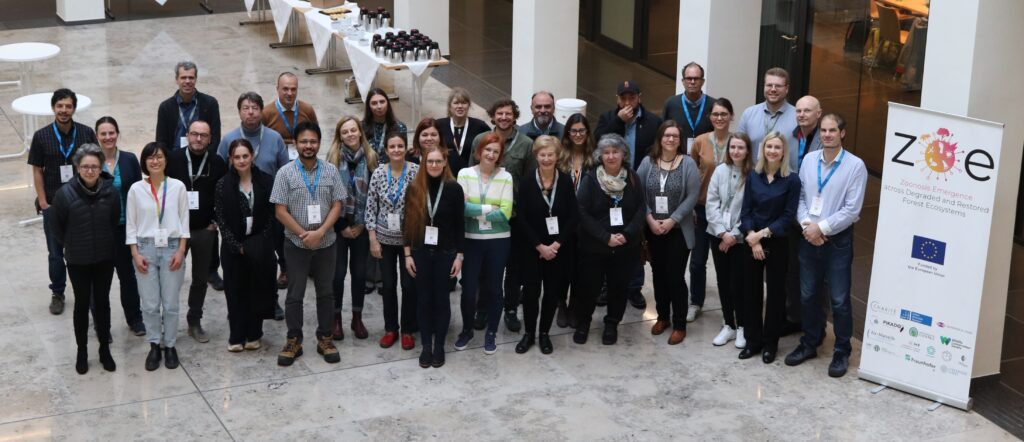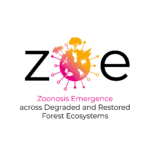Start of the project ZOE - Zoonoses Emergence across Degraded and Restored Forest Ecosystems.
What are the links between biodiversity loss and the risk of transmission of disease carriers between animals and humans, so-called zoonoses? How can synergies be created between holistic approaches to health and biodiversity conservation to reduce the risk of future zoonotic disease outbreaks? What role does human behaviour play in relation to the use of forests, such as deforestation due to agricultural expansion and urbanization?
The EU-funded Horizon Europe project ZOE is investigating these questions in an interdisciplinary consortium with 12 partner organizations from the fields of geography, geobotany, ecology, virology, immunology, epidemiology, sociology, psychology and science communication. Led by Jan Felix Drexler from the Institute of Virology at Charité – Universitätsmedizin Berlin and Nadja Kabisch from the Institute of Physical Geography and Landscape Ecology at Leibniz Universität Hannover, the team will spend the next four years mapping biodiversity and land use changes at macro and micro levels (from satellite images to microorganisms) and modeling disease risks. Furthermore, the project will identify social and cultural pathways to better understand the interactions between changes in forest ecosystems, biodiversity and disease development and to positively influence these relationships. The consortium will examine case studies in Slovenia, Slovakia, Costa Rica and Guatemala to demonstrate the complexity of ecological and social interactions in diverse local contexts.

Prof. Kerstin Krellenberg and the Urban Studies Working Group will contribute particularly to the development and implementation of the project´s trans- and interdisciplinary methodology: through a literature review on the drivers and mechanisms of relations; the co-creative development of context-specific methods to assess risk perception, vulnerabilities, and coping and adaptation practices in the case studies; as well as through a series of workshops to strengthen the resilience of local actors and reduce health risk and biodiversity loss.
Details:
Project period 01.2024-12.2027
Project management at the University of Vienna
Univ.-Prof. Dr. Kerstin Krellenberg
Dr. Julia Wesely
Charlotte Tienes, MSc
Johannes Richter
Project partners:
Charité – Universitätsmedizin Berlin
Biomedicinske Centrum Slovenskej Akademie Vied, Verejna Vyskumna Institucia – Biomedial Research Center of the Slovak Academy of Sciences
Fraunhofer Gesellschaft zur Förderung der Angewandten Forschung e.V.
Gottfried Wilhelm Leibniz Universität Hannover
Pikado B.V
Universidad de Costa Rica
Universidad del Valle de Guatemala
Universidade da Coruña
Universität Potsdam
Universität Wien
Universite d´Aix Marseille
Univerza v Ljubljani
Funded by: EU Horizon Europe


